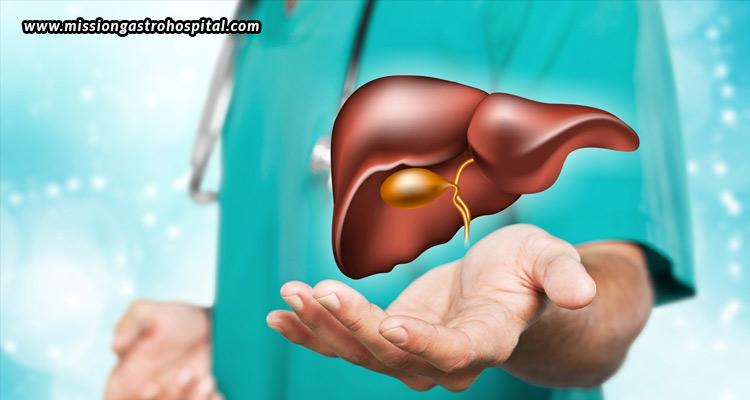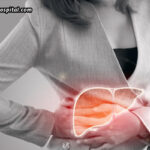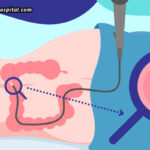One of the most important organs in the human body, the liver performs a wide range of tasks that keep our systems operating efficiently. The liver plays a vital role in general health, not just in aiding with digestion but also in filtering pollutants and creating bile. Regretfully, the prevalence of liver illnesses is rising, and they are frequently brought on by unhealthy eating habits, excessive alcohol use, and sedentary lifestyles. The significance of liver function, the early indicators of liver disease, and practical preventive strategies—such as dietary adjustments, alcohol moderation, and the value of routine liver tests like FibroScan—will all be covered in this guide.
The Importance of Liver Function
The liver is an important organ that carries out more than 500 key tasks, such as breaking down toxic substances like alcohol and drugs, metabolizing proteins, lipids, and carbohydrates for energy, and creating bile to help break down fat and absorb fat-soluble vitamins (A, D, E, and K). Additionally, it stores vital minerals like iron and vitamins and promotes blood clotting by manufacturing prothrombin and fibrinogen, two critical proteins. By removing toxins and germs from the circulation, the liver plays a crucial part in immune system function. Because the liver plays such important tasks, any damage to it can result in serious health problems, which is why liver disease prevention and early detection are so important.
Warning signs of liver disease
Liver disease is sometimes referred to as a “silent disease” since symptoms may not show up until serious damage has been done. It can manifest as cirrhosis, hepatitis, alcoholic liver disease, non-alcoholic fatty liver disease (NAFLD), or any combination of these. Early warning indicators include pale stool, dark urine, easy bruising, nausea, exhaustion, jaundice (yellowing of the skin and eyes), and lack of appetite. Early detection and medical intervention are crucial for assessing liver function, initiating therapy, averting complications, and controlling the course of the disease.
Prevention tips for maintaining liver health
A mix of dietary decisions, frequent check-ups with the doctor, and lifestyle adjustments are necessary to prevent liver disease. The following are a few practical suggestions for keeping your liver healthy.
- Limiting alcohol consumption: Limiting alcohol intake is necessary to prevent liver disease since heavy drinking damages the liver. Liver health can be preserved by drinking in moderation—up to two drinks per day for males and one for women—and abstaining from binge drinking. Cutting less on alcohol can help avoid cirrhosis, fibrosis, and alcoholic hepatitis, conditions in which the liver is overloaded with alcohol and becomes inflamed and scarred.
- Adopting a liver-friendly diet: Keeping up a diet that is healthy to the liver is crucial for liver health. While reducing saturated fats, processed sweets, and fried foods helps prevent fatty liver disease, a diet high in fruits, vegetables, and good fats (such as omega-3 fatty acids from fish and nuts) promotes liver function. Eating whole grains facilitates digestion, and staying hydrated promotes the liver’s general health and cleansing functions.
- Maintaining a healthy weight: The prevention of liver disease, particularly non-alcoholic fatty liver disease (NAFLD), is largely dependent on maintaining a healthy weight. An increased risk of cirrhosis might result from inflammation and scarring caused by excess fat in the liver. Maintaining a healthy weight and liver requires a balanced diet and 150 minutes per week of moderate aerobic exercise or 75 minutes per week of intense exercise.
- Avoiding toxins and medications harmful to the liver: Liver cells can be harmed by some drugs and environmental contaminants. It’s crucial to adhere to dose recommendations while using painkillers since overdosing, particularly with paracetamol, can result in abrupt liver failure. Liver toxin exposure can be decreased by limiting exposure to chemicals included in aerosol sprays, cleaning products, and insecticides as well as by wearing protective gear and adequate ventilation.
The role of regular liver tests like FibroScan
One of the most effective ways to monitor liver health and detect early signs of liver damage is through regular liver function tests. One such advanced test is FibroScan, a non-invasive technology used to assess liver stiffness and fat accumulation, especially in individuals with non-alcoholic fatty liver disease (NAFLD) or chronic liver disease (hepatitis). Without requiring invasive biopsies, FibroScan assesses liver elasticity and aids in the detection of fibrosis or scarring. In ten to fifteen minutes, it can accurately diagnose a patient and offer prompt findings. Individuals who are susceptible to liver disease because of high alcohol use, obesity, or viral hepatitis should have routine FibroScan testing to keep an eye on the condition of their livers and follow the course of the disease, modifying therapy as needed.
Mission Gastro Hospital, the best gastroenterologist hospital in Ahmedabad, offers advanced FibroScan services, which give a non-invasive and precise examination of liver stiffness. Their cutting-edge technology guarantees rapid, painless testing with instantaneous findings, assisting in the efficient monitoring and management of liver health.








